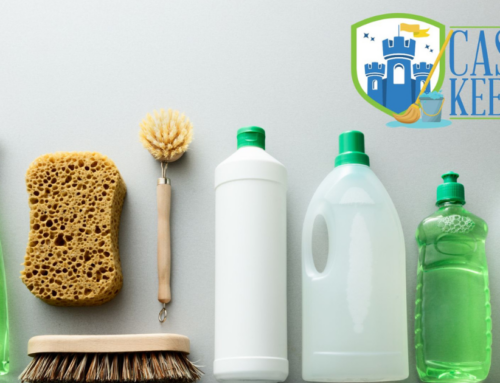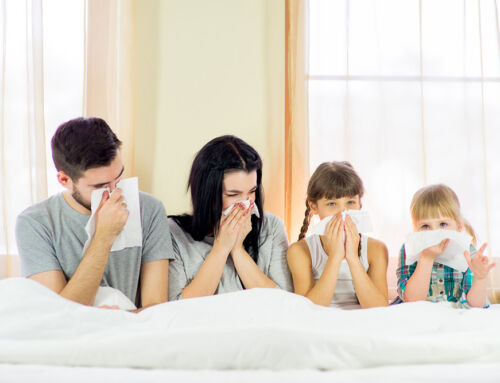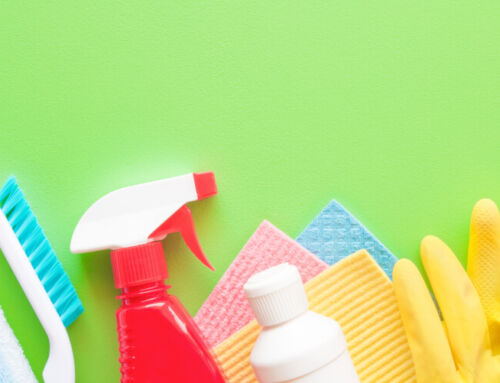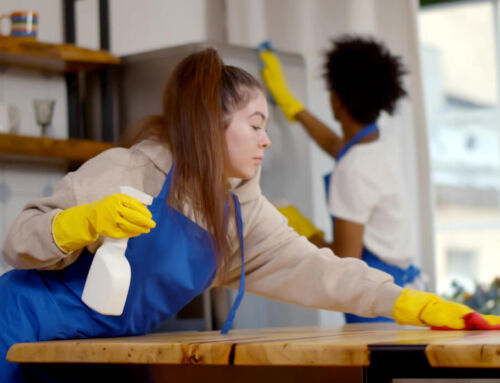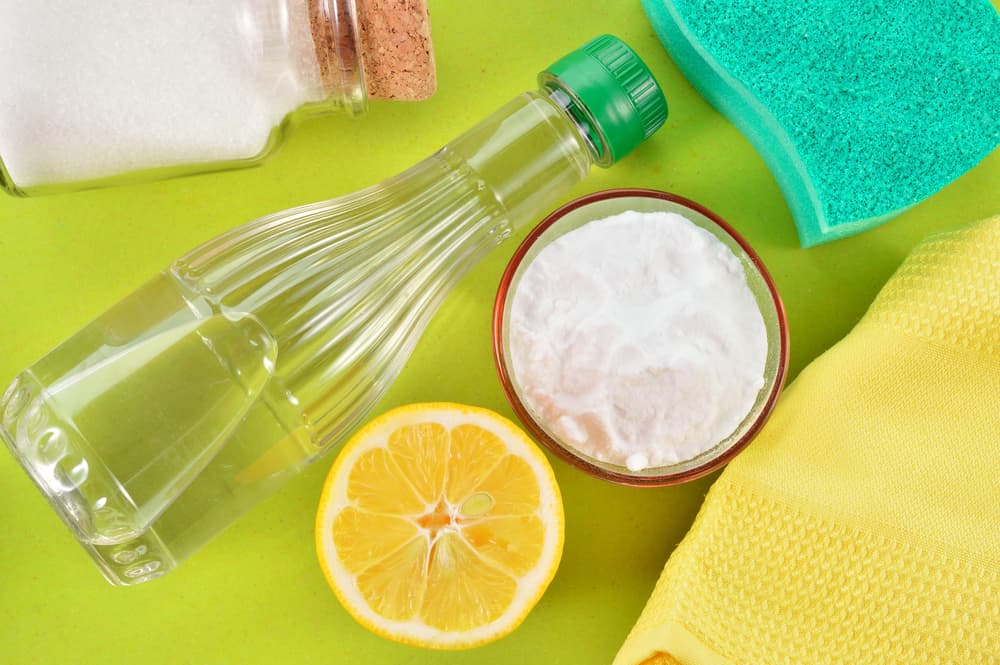
Is Vinegar a Natural Disinfectant?
Ask any mom-blogger who wants a clean and disinfected home for her little ones and who knows the dangers of toxic cleaning chemicals, and you’ll hear that white vinegar has long been known to disinfect as well or better than anything you can buy at the store.
We use it in cooking, so it’s safe to consume. It has a very strong odor, just like many store-bought disinfectants. It’s also a clear liquid, so it appears free of adulterating ingredients. It sounds logical that it would be a natural disinfectant, right?
Is white vinegar antibacterial and antifungal?
You’ll often hear people ask: “Does vinegar kill flu germs?” and “How long does vinegar need to sit to disinfect?” While vinegar meets the “safe” and “natural” categories many moms are looking for in a cleaner, we wanted to check out the “effective” part of the equation.
First, it’s important to understand the difference between cleaners and disinfectants:
- Cleaners physically remove dirt, debris, and some germs from a surface, but don’t necessarily kill germs.
- Disinfectants destroy germs based on the time they are in contact with the germs, known as dwell time or contact time, so they probably won’t kill all germs immediately, or on contact. You have to leave the surface you are disinfecting wet for the duration of the dwell or contact time recommended on the label. In addition, disinfectants are formulated to kill or inactivate specific germs (viruses, bacteria and fungi) which are listed on their label, so it’s good to know what germs you want to eliminate before purchasing one or it might be ineffective.
To qualify as a disinfectant, a product must meet certain EPA standards. A disinfectant should kill 99.9% of harmful germs within 5 to 10 minutes. Look for the EPA registration number on the product label, which will be listed as “EPA Reg, No.” Always follow the manufacturer’s directions for application, contact or dwell time, concentration, and amount of disinfectant to use.
How strong is grocery store vinegar?
Scientist Vince Calder responds that there is anecdotal proof but that the vinegar available in the grocery store or pharmacy is NOT strong enough to do the trick.
“A ‘proof’ often used that vinegar is a disinfectant under certain conditions is the fact that it is used, along with a salt (brine), to make and preserve pickles. In general, the highest concentration possible would be most effective. In the U.S. 5% acetic acid constitutes vinegar, and high concentrations are available only through chemical suppliers and not in the grocery store or pharmacy. As a general disinfectant, I would suspect that bleach, because it disinfects by oxidation, is more effective.”
Thus, vinegar is not very effective at killing or inactivating bacteria, viruses or fungi in household settings where consumers are most likely to use it. The distilled white vinegar available in stores is only 4% to 5% acetic acid, and while it smells and tastes strong, it is not a strong enough concentration to kill most germs in a practical amount of time.
For SARS-CoV-2, the coronavirus that causes COVID-19, there is no direct research that suggests distilled white vinegar would be effective against it. In fact, no vinegar-based cleaning products are included in the EPA’s list of disinfectants that work against SARS-CoV-2.
“Unless the acetic acid concentration in vinegar is higher than 5%, there is very little that it can do to disinfect, which is hardly an effective method of keeping your family healthy.”
What concentration of acetic acid kills bacteria?
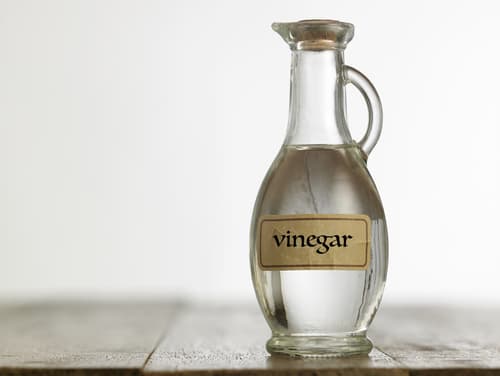 Truy Wassenaar, curator of the Virtual Museum of Bacteria offers some additional proofs to answer this question: “The effectiveness of various concentrations depends on the demands. Undiluted bleach can be used to disinfect used syringes (used by intravenous drug users) and can inactivate HIV completely; however acetic acid does not inactivate HIV.
Truy Wassenaar, curator of the Virtual Museum of Bacteria offers some additional proofs to answer this question: “The effectiveness of various concentrations depends on the demands. Undiluted bleach can be used to disinfect used syringes (used by intravenous drug users) and can inactivate HIV completely; however acetic acid does not inactivate HIV.
Less dramatic, 2% is sufficient to disinfect nebulizers used by patients with cystic fibrosis at home. A solution of 1% acetic acid can be used to decontaminate the surface of freshly laid eggs. For decontamination of fresh parsley, a dip in vinegar containing 7.6% acetic acid is sufficient. On the other hand, an acid drip of beef meat in 2% acetic acid for decontamination is largely ineffective against E. coli because this organism is acid-intolerant.”
In another study, the effectiveness of 2% acetic acid to kill Listeria monocytogenes attached to stainless steel was found to be low.
In summary, unless the acetic acid concentration is higher than 5%, there is very little that vinegar can do to disinfect, only perhaps decontaminate, which is hardly an effective method of keeping your family healthy.
And then we found this response from Dr. Christine Ticknor of Case Western Reserve University, which just clarified everything: “Vinegar is really acetic acid, and will be more effective as a disinfectant at higher concentrations. (It would be most effective undiluted).”
She goes on in her comments to describe the type of comparative study that would be needed to:
- prove that vinegar at some concentration level achieves disinfection and
- identifies the various levels of effective disinfection and the method of use necessary (including dwell time) to achieve disinfection
Ticknor also identifies that vinegar alone is not strong enough but may be combined with other agents to create a vinegar disinfectant recipe. So, the short answer to the question is NO, the vinegar available to the consumer at the diluted 5% acetic acid concentration is NOT A DISINFECTANT.
Although vinegar is a poor disinfectant, it has its uses as a cleaner. It is most effective in the bathroom to remove limescale, the white, crusty buildup that forms when hard water evaporates and leaves mineral deposits behind on showerheads and faucets. It is also a good rinsing agent for glass and windows, and for descaling coffee makers.
Because of its acidity, though, it isn’t safe for use on all surfaces. Vinegar may damage surfaces like:
- Stone (granite, marble, soapstone)
- Aluminum
- Cast iron
- Waxed surfaces like wood furniture and flooring
WARNING: Never mix vinegar with bleach, as the combination will form toxic fumes that can damage your respiratory tract.
What cleaning company can thoroughly clean and disinfect my home?
Here at Castle Keepers, we’ve developed a comprehensive approach to cleaning, which relies on our vast experience and extensive knowledge. We use products that are both effective and toxin-free to clean and sanitize your home. Our services are versatile, streamlined, and customized to your specific needs.
If you have any questions about maintaining your home, like how to mop hardwood floors or how to keep your stone floors in prime condition, give us a call. In addition, our trained specialists will also breathe new life into your leather upholstery, clean your oven in-depth, and perform many other types of housework. Contact us today to request your free quote and see our affordable rates for yourself!
[caldera_form_modal id=”CF5c1a57687975a” type=”button” width=”500″]Click For Estimate[/caldera_form_modal]
Share this article
A quick overview of the topics covered in this article.

